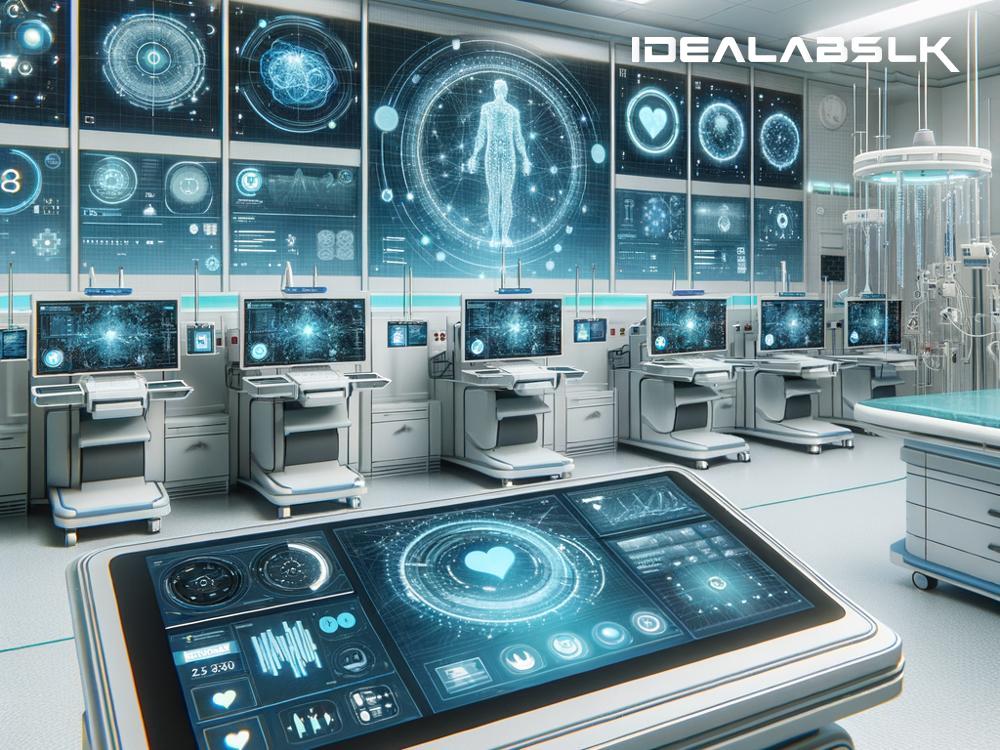How AI and IoT are Making Healthcare Greener
In today's world, where climate change and environmental degradation are among the top concerns, every industry is looking towards more sustainable practices. The healthcare sector is no exception. The environmental footprint of healthcare systems globally is substantial, contributing significantly to carbon emissions, energy consumption, water usage, and waste production. However, with the advent of Artificial Intelligence (AI) and the Internet of Things (IoT), there's a silver lining to this cloud. These technologies are playing a pivotal role in reducing the environmental impact of healthcare systems, making them greener and more sustainable. Let's take a closer look at how this is happening.
What are AI and IoT?
Before diving into the specifics, let's quickly define AI and IoT. Artificial Intelligence (AI) refers to computer systems or machines that mimic human intelligence to perform tasks and can improve themselves based on the information they collect. IoT, or the Internet of Things, is about connecting everyday objects to the Internet, allowing them to send and receive data. Imagine your coffee maker talking to your alarm clock to have your coffee ready as soon as you wake up; that's IoT in action.
Streamlining Operations
One of the primary ways AI and IoT contribute to a greener healthcare system is by optimizing operations. For instance, AI algorithms can predict patient admission rates and help hospitals manage their staff and resources more efficiently, reducing energy and resource wastage. Furthermore, IoT devices can monitor energy use in real-time, identify areas where energy is being wasted, and automatically adjust settings to conserve energy. This not only reduces the carbon footprint but also saves costs.
Better Waste Management
Healthcare facilities produce a significant amount of waste, from disposable syringes to contaminated packaging. Sorting and disposing of this waste properly is crucial to minimize its environmental impact. AI can help in this regard by analyzing waste production patterns and suggesting more efficient disposal and recycling strategies. IoT devices can also track waste levels in bins and containers, alerting facility managers when it's time for disposal, ensuring waste is dealt with promptly and effectively.
Enhancing Telemedicine
The rise of telemedicine, partly fueled by the COVID-19 pandemic, has been a game-changer in reducing the environmental impact of healthcare. By allowing patients to consult with their doctors over the internet, it cuts down on the need for transportation, reducing greenhouse gas emissions. AI and IoT play a crucial role in telemedicine by improving diagnostic tools and patient monitoring devices, making remote healthcare more effective and accessible, and further reducing the need for physical travel.
Reducing Drug Waste with Precision Medicine
A significant amount of pharmaceutical waste comes from medications that are ineffective for patients due to their unique genetic makeup. AI helps in the development of precision medicine, which tailors drug treatments to the individual characteristics of each patient, significantly reducing the volume of wasted medications. On the other hand, IoT devices can monitor a patient's response to medication in real time, allowing for adjustments to be made before excess medication becomes waste.
Energy-efficient Buildings
Finally, AI and IoT are transforming healthcare facilities into smart buildings that are more energy-efficient. For instance, IoT sensors can control lighting, heating, and cooling systems based on occupancy and the time of day, significantly cutting down energy use. AI can also predict peak energy demand periods and adjust the building's systems to minimize energy consumption during these times, contributing to a more sustainable healthcare environment.
The Road Ahead
The potential of AI and IoT in making healthcare systems greener is immense. However, leveraging these technologies to their fullest requires investment, both in terms of money and effort, and a commitment to sustainable practices. Moreover, concerns around data privacy and security, particularly with patient information, need to be addressed to ensure these technologies can be adopted more widely.
In conclusion, AI and IoT are not just transforming healthcare through innovations in patient care and operational efficiency; they're also leading the charge towards a more sustainable and environmentally friendly healthcare system. As we continue to grapple with the challenges of climate change, the role of technology in mitigating the environmental impact of crucial sectors like healthcare becomes all the more critical. By embracing these technologies, we can take a significant step towards a greener, more sustainable future for all.

